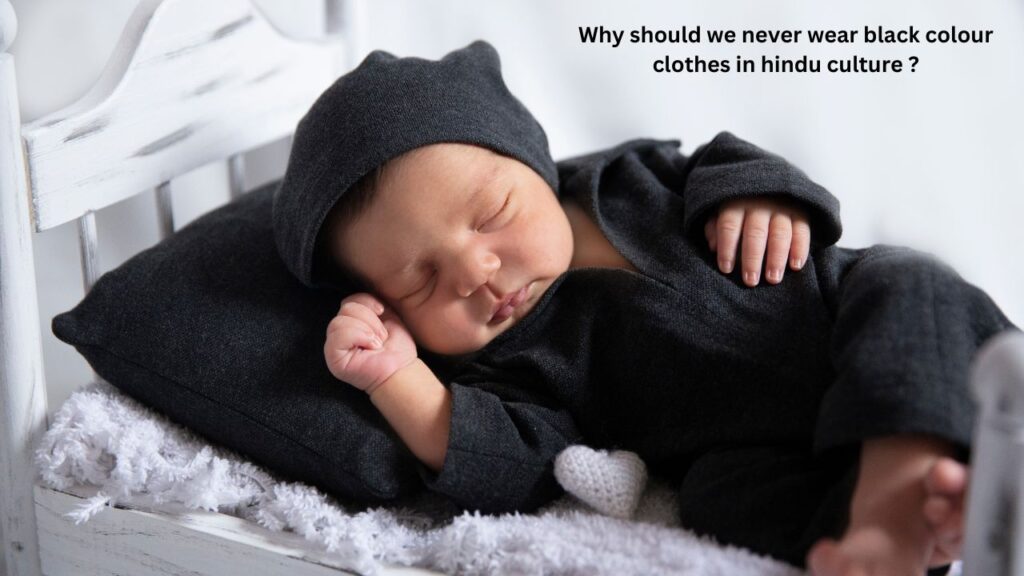
The Significance of Black Clothes in Hindu Culture: Unraveling the Myth
In Hindu culture, colors play a significant role, symbolizing various emotions, occasions, and beliefs. Among these, black clothes is often considered as a negativity in many cultures worldwide. However, the notion that Hindus should never wear black is a misconception that requires clarification.
Black, in Hinduism, is not inherently forbidden. It’s true that certain customs and beliefs discourage its use in specific contexts, but it’s essential to understand the nuanced perspectives surrounding this color.
Understanding Colors in Hindu Culture:
Before delving into the significance of black, let’s explore the broader context of colors in Hindu culture. Colors hold profound symbolism and are deeply integrated into rituals, festivals, and daily life.
- White: White signifies purity, innocence, and auspiciousness. It is often worn during religious ceremonies, weddings, and festivals.
- Red: Red symbolizes passion, power, and fertility. It is commonly associated with weddings and festivals like Diwali and Durga Puja.
- Yellow: Yellow represents knowledge, learning, and auspiciousness. It is worn during religious ceremonies and rituals.
- Green: Green symbolizes growth, harmony, and prosperity. It is associated with nature and fertility.
- Blue: Blue represents the divine and the infinite. It is associated with gods like Lord Krishna and is considered highly auspicious.
The Myth of Black in Hindu Culture:
Contrary to popular belief, there isn’t a blanket prohibition against wearing black in Hinduism. However, certain customs and beliefs discourage its use in specific situations:
Mourning: Black is often associated with mourning and death in many cultures, including Hinduism. During periods of mourning, individuals may avoid wearing black as a sign of respect for the deceased.
Astrological Beliefs: In astrology, some practitioners advise against wearing black on specific days of the week or during certain planetary alignments. This advice is based on astrological interpretations rather than strict religious injunctions.
Superstitions: Some superstitions caution against wearing black due to its perceived association with negative energies or evil spirits. These beliefs vary regionally and are not universal across Hindu communities.
Reinterpreting the Significance:
While black may be avoided in certain contexts, it’s essential to revisit its symbolism within Hinduism:
Shiva and Kali: In certain sects of Hinduism, black holds profound significance. Lord Shiva, the destroyer and transformer, is often depicted with a dark complexion. Goddess Kali, a fierce deity associated with time, death, and destruction, is portrayed with black or dark blue skin. For devotees of these deities, black can represent transcendence, transformation, and the cycle of creation and destruction.
Yogic Practices: In yoga and meditation, black is sometimes associated with the Muladhara chakra, also known as the root chakra. This chakra is linked to survival instincts, grounding, and stability. For practitioners, wearing black may aid in focusing on these aspects during meditation.
Individual Choice: Ultimately, the choice of clothing color is a personal preference influenced by cultural norms, individual beliefs, and practical considerations. While some may avoid black due to cultural or religious reasons, others may embrace it as a symbol of elegance, sophistication, or personal style.
Conclusion:
The belief that Hindus should never wear black is a misconception rooted in cultural interpretations rather than religious doctrine. While black may be associated with mourning, superstitions, or astrological beliefs in certain contexts, its significance in Hinduism is multifaceted.
Understanding the broader spectrum of colors in Hindu culture allows us to appreciate the diverse symbolism and interpretations associated with each hue. Rather than adhering rigidly to prohibitions, it’s essential to embrace individual choice and cultural diversity while respecting traditional customs and beliefs.
Contact us at 9854282828 or 9859282828
